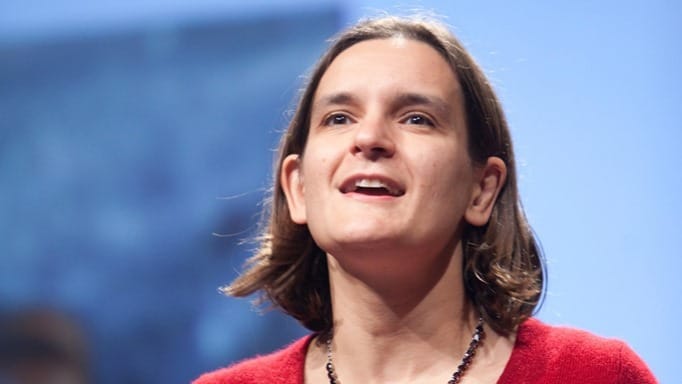New Delhi: Esther Duflo Monday became the second woman to win the Nobel Prize in Economic Sciences. She was named this year’s recipient along with husband Abhijit Banerjee and Michael Kremer.
In a phone call with the NobelPrize.org, Duflo highlighted there is a “structural and fundamental” problem in the profession, which is why she is the only living woman with a Nobel Prize in Economics.
“I think it does reflect the fact that there are not enough women in the Economics profession. Period. This problem is at all levels. Not enough women go into Economics as graduate students, not enough women continue to become assistant professor that get promoted and get frequently recognised for their work. So we really have a problem in Economics that is structural and fundamental,” she said.
At 46, the French-American is also the youngest recipient of the award.
“I think the profession is starting to realise the general climate and the way we treat each other is not conducive for having more women in the profession. It is not just about promotion but it’s about the general environment and how people talk to each other and address each other in seminars. That we need to work on a culture that is more respectful and that will be more acceptable for many women who don’t think they want to play the games of shouting at each other,” she said.
Duflo is the Abdul Latif Jameel Professor of Poverty Alleviation and Development Economics at the Massachusetts Institute of Technology (MIT) and a co-founder and co-director of the Abdul Latif Jameel Poverty Action Lab (J-PAL). According to MIT’s website, Duflo’s work seeks to understand the economic lives of the poor, with the aim to help design and evaluate social policies.
According to a BBC report, Banerjee was Duflo’s Ph.D supervisor and their work, alongside that of Kremer, has focused on poor communities in India and Africa.
The Royal Swedish Academy of Sciences said the winners had introduced “a new approach to obtaining reliable answers about the best ways to global poverty”.
The husband-wife duo has published dozens of research papers at MIT, together and with other co-authors. They have also co-written two books together, Poor Economics (2011) and the forthcoming Good Economics for Hard Time (2019).
Hoping to represent all women in the field with her win, Duflo wished to show that it was possible for people like her to succeed and to “inspire women to continue working” and “men to give them the respect that they deserve”.
She also said it was necessary to show “younger people that Economics is relevant to problems that they care about”.
“Many women do not see themselves thinking about finance but they might be more likely to see themselves doing things directly relevant to things that influence the world, against poverty or social problems,” she said.
The only other woman Nobel laureate in the field is Elinor Ostrom, who, in 2009, broke the glass ceiling at the age of 76 to enter a club that was till then exclusively dominated by men.
At the time, Ostrom, an American, was a professor at Indiana University and had won the prize “for her analysis of economic governance, especially the commons.” She passed away in June 2012.
Also read: Economics Nobel winner Abhijit Banerjee a Modi govt critic, saw no logic in demonetisation






